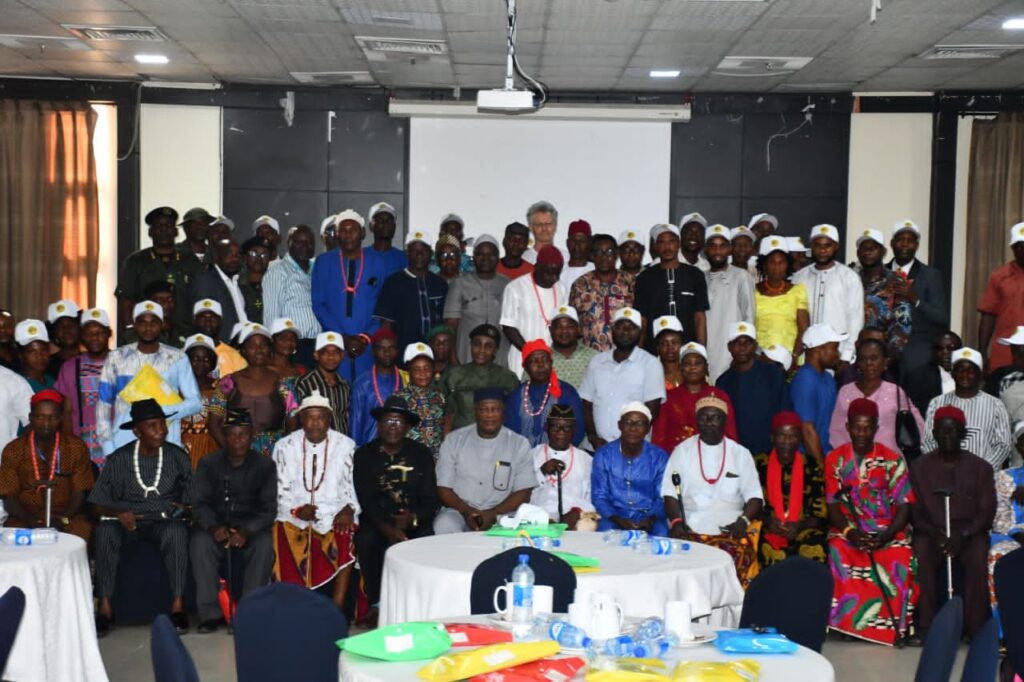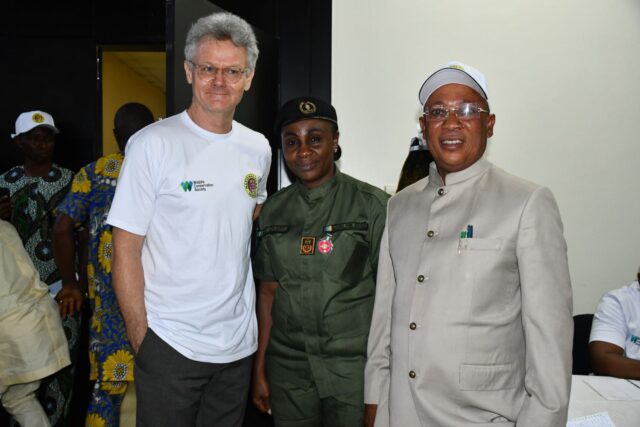L-R: Country Director, Wildlife Conservation Society, Andrew Dunn; Conservator of Park, Cross River National Park, Caroline Olory; and Honourable Commissioner for Tourism and Culture, Honourable Abubakar Robert Ewa at the Stakeholders Meeting.
Environmentalists and Communities in Cross River state have charged the federal government to beef up security around the National Park and international boundaries following fresh security threats from Cameroon.
This position was taken on Tuesday at a stakeholders meeting with the support zone Communities, the academia, State Government, Civil Society organizations held on Tuesday, at the Transcorp Hotel, Calabar, organized by the Wildlife Conservation Society (WCS) in partnership with National Parks Service with support from Arcus Foundation.
In a 10 point resolution moved for adoption by Dr Richard Effa (Retired Conservator of Park) and seconded by Dr. Odigha Odigha (Forest Stakeholder), HH Chief Ferdinand Onu (Okwa 1); and Miss Anashie Mary (Otsakwai-Bumaji), it was agreed that the federal government “should be deliberate about tackling security challenges in the National Park support zone communities that are sharing boundaries with Cameroon, because of the threats from cross border separatist (Ambazonia) activities”.
The re-emphasised that “to control insecurity and keep the ecological integrity of the National Park intact, mining, logging, farming, hunting and other illegal activities remains prohibited in the National Park”.

The participants acknowledged that the “National Park is a legally protected area backed by law and that all the wildlife and other natural resources therein are not just owned by government but the communities as such all must join hands to protect the Park.
“Governments, civil society organizations, and communities in and around the Cross River National Park must act collectively to preserve the Cross River National Park and attract multiple benefits to improve the value of the park and the living conditions of the communities”.
They emphasized the need to harness State Government support for national Park activities, particularly in ecotourism as “conservation awareness creation and knowledge sharing should be improved upon in communities, particularly in partnership with the electronic and print media.
“Develop and implement conflict resolution and grievance redress mechanism to support the improved management of the park.
“Prioritize community wellbeing by creating infrastructures to promote socioeconomic linkages, access to at least primary healthcare and basic education. Recognize and strengthen local (community) institutions to support Park management.
“Commitments by stakeholders towards protecting the National Park and developing communities should be kept”.
In this regards, it was recommended that collaboration be strengthened and sustained between the National Park Service, WCS, and the communities through constant engagements with communities and other stakeholders.
That the National Park and other relevant stakeholders should be deliberate about sourcing for Funding, and/or Implementation of a revolving financial scheme like the ecological fund that will empower the community.





